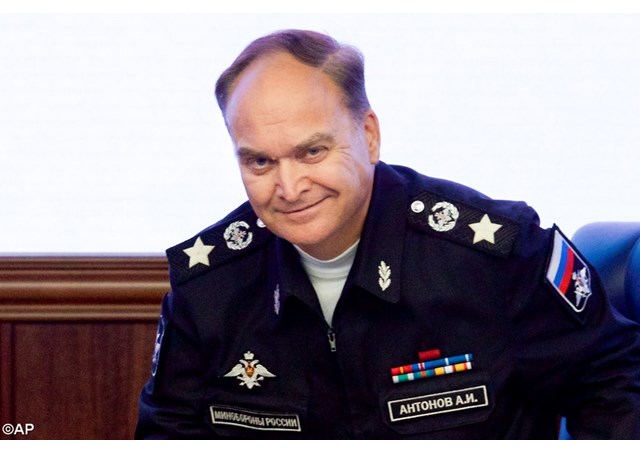
Russia's President appoints new US Ambassador

(Vatican Radio) Russian President Vladimir Putin has appointed a former deputy defense minister as Russia's new ambassador to the United States amid mounting tensions between Moscow and Washington. The announcement came while the U.S. Embassy in Russia suspended issuing non-immigrant visas to Russian citizens.
Listen to the report by Stefan Bos:
The Kremlin said Monday that Putin has decided that Russia's new ambassador to the U.S. would be Anatoly Antonov, a deputy foreign minister, and former deputy defense minister. He is seen as a hardliner towards the U.S.
Antonov replaces Ambassador Sergei Kislyak, whose tenure ended in July. The outgoing ambassador played a prominent role in the controversy over Russia's possible involvement and interference in last year's U.S. presidential election.
President Donald Trump's first national security adviser, Michael Flynn, resigned after lying about contacts with Kislyak. Attorney General Jeff Sessions recused himself from the investigation into possible Russian interference in the 2016 election after reports that he hadn't disclosed meetings with Kislyak.
Antonov arrives in the United States amid ongoing diplomatic tensions over these and other issues between the two nuclear powers. On Monday, the U.S. Embassy in Russia said it would suspend providing nonimmigrant visas for eight days from Wednesday in response to a Russian decision to cap embassy staff.
THOUSANDS AFFECTED
It said it would resume issuing visas in Moscow on September 1 but maintain the suspension at consulates in St. Petersburg, Yekaterinburg and Vladivostok indefinitely.
That step could affect hundreds of thousands of Russian tourists.
The embassy decided to take this action after Russia ordered the U.S. to cut its embassy and consulate staff in Russia by 755, or by two-thirds.
Foreign Minister Sergey Lavrov told a news conference the U.S. decision to cut visa operations aims well known to make Russians feel resentment towards their government. "The American authors of these decisions have come up with another attempt to stir up discontent among Russian citizens about the actions of the Russian authorities. It is a well-known logic ... and this is the logic of those who organize color revolutions," he said.
Asked about a possible Russian reaction, Lavrov said Russia would "study" the embassy's announcement. But he added that unlike the U.S. government "Russia is not going to take it out on U.S. citizens."
| All the contents on this site are copyrighted ©. |


